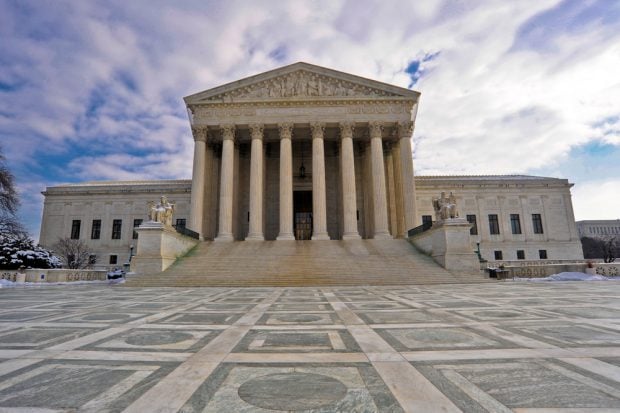 Since U.S. District Judge Richard Leon issued hisshocking decision on July 31 that called for even more draconianprice controls under Dodd-Frank's Durbin Amendment, some legalcommentators have given him the benefit of the doubt.
Since U.S. District Judge Richard Leon issued hisshocking decision on July 31 that called for even more draconianprice controls under Dodd-Frank's Durbin Amendment, some legalcommentators have given him the benefit of the doubt.
They concede the Durbin Amendment is bad law, but they say Leonwas correct in his interpretation of the amendment, which basicallymandates the Federal Reserve not set price caps on what banks andcredit unions charge for interchange fees on debit cards at anyrate higher than retailers would like to pay them.
|These commentators, some of whom I respect a great deal, simplyoverlook the incredible sloppiness in Leon's ruling in NACS. v.Board of Governors of the Federal Reserve. Leon's decision oozeswith unprofessional snark, misconstrues economic terms in thestatute's language, and limits its research of “legislative intent”to the “intent” of one member of Congress who voted for thelegislation: Sen. Richard Durbin (D-Ill.).
|Leon's ruling also forces the Fed to construe the law in a waythat almost certainly will foment a constitutionalchallenge—similar to the lawsuit TCF Bank filed after the Fed'smore stringent “proposed rule” in late 2010—involving the 5thAmendment property right to seek a return on capital invested.
|Because of these many flaws, the Fed has a good shot at gettingthe ruling overturned in its pending appeal.
|First, the snark. I've never seen a ruling with so manysarcastic asides at a party in the suit.
|Care is also lacking when Leon attempts to define words in thestatute. The crux of the issue is that in setting the pricecontrols, the Durbin Amendment allows the Fed to consider “theincremental cost incurred by an issuer for the role of the issuerin the authorization, clearance or settlement of a particular”debit transaction, but bars it from including “other costs…whichare not specific to a particular” transaction. This may soundsomewhat clear at first read, but the term “incremental cost” isnever defined in the law.
|Citing just one federal court decision from 1992, Leon concludesthat incremental costs mean variable, as opposed to fixed costs,and thus the Fed was allowing too many bank and credit union coststo be considered in setting the price controls. Yet Leon ignoresthe body of economic literature over the past few decades thatdefine incremental costs as including at least some fixedcosts.
|“Incremental cost includes both product-specific variable andfixed costs of production,” wrote Ashish Lall, professor ofeconomics at the National University of Singapore. Lall citesaward-winning American economist William Baumol as providing thisexpansive definition of incremental costs. Lall and Baumol arepicking up on an insight of Nobel Laureate Ronald Coase in hisclassic treatise The Firm, The Market, and The Law, thataverage costs do not necessarily decline if producing an additionalunit requires higher fixed costs.
|The Fed was in line with the mainstream of economists in givingthis term this reading. If Congress really wanted the pricecontrols to allow only for variable costs, then why doesn't the lawspecifically say variable costs rather than incremental costs?
|Leon tries to paper over his slipshod interpretation of thestatute's language with a strained reading of legislative intent.He cites Durbin's repeated statements that the Fed should set pricecontrols as stringently as possible but neglects other members whovoted for the Durbin Amendment and the Dodd-Frank legislation, whothen made the case to the Fed to consider more costs.
|For instance, Sen. Debbie Stabenow and Sen. Carl Levin, bothDemocrats from Michigan, wrote to the Fed in 2011 to “urge you toconsider fraud-related costs and to make every reasonable effort tomitigate any potential impact on access to banking services forlow- and middle-income families and businesses.”
|Given Leon's overreach, the Fed is right not to fear taking himon in its appeal. It is also probably aware that if it doesn't gothat route and price controls become more stringent, the litigationfrom all parties likely will continue.
|Richard Epstein, the property rights expert and New YorkUniversity law professor who represented TCF, agreed with Leon'sinterpretation of the statute. But Epstein reaffirmed his view thatthe statute itself is unconstitutional, because it deprives banksand credit unions of the property right to seek a return on capitalinvested guaranteed by the Due Process and Takings clauses of the5th Amendment.
|John Berlau is senior fellow for finance at the CompetitiveEnterprise Institute.
|Contact: 202-331-1010 or [email protected].
Complete your profile to continue reading and get FREE access to CUTimes.com, part of your ALM digital membership.
Your access to unlimited CUTimes.com content isn’t changing.
Once you are an ALM digital member, you’ll receive:
- Critical CUTimes.com information including comprehensive product and service provider listings via the Marketplace Directory, CU Careers, resources from industry leaders, webcasts, and breaking news, analysis and more with our informative Newsletters.
- Exclusive discounts on ALM and CU Times events.
- Access to other award-winning ALM websites including Law.com and GlobeSt.com.
Already have an account? Sign In
© 2024 ALM Global, LLC, All Rights Reserved. Request academic re-use from www.copyright.com. All other uses, submit a request to [email protected]. For more information visit Asset & Logo Licensing.









